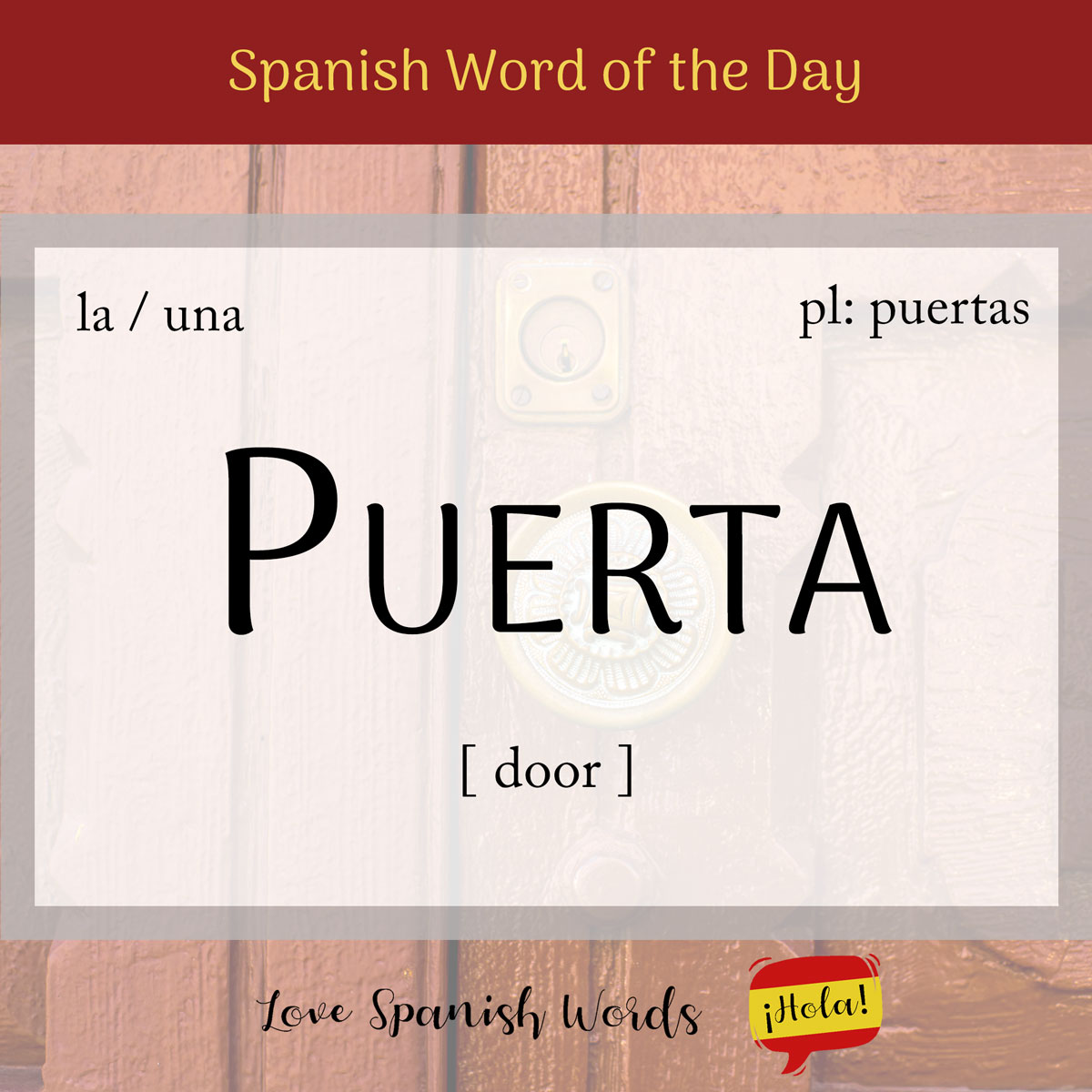Today, let’s take a closer look at a simple yet essential object we all use daily without much thought: doors. We pass through them several times a day, and they can be made from various materials.
Door in Spanish is puerta and it comes directly from the Latin porta meaning gate or entrance.
Latin American Pronunciation
European Pronunciation

Being a feminine noun, puerta takes the following definite and indefinite articles:
- la puerta = the door
- las puertas = the doors
- una puerta = a door
- unas puertas = some doors
Algún día me encantaría tener una casa con una puerta roja.
One day I would love to have a house with a red door.
In most buildings (edificios), the door (puerta) is a rectangular hole (hueco) in the wall (pared) used to enter (entrar) or leave (salir) a room. The entrance or gateway is called la entrada and the exit is la salida but both can be called la puerta.
This hole in the wall can be closed with an actual physical door or gate (puerta) which can be made of wood (madera), metal (hierro) or even glass (cristal). Below is a list of some of the different types of doors we can find in different localities:
- puerta de vidrio= glass door
- puerta cortafuegos = fire door
- puerta giratoria = revolving door
- puerta corredera = sliding door
- puerta oscilante = swing door
- puerta de jardín = garden gate
Sometimes, we need to be clear about which door we’re referring to, especially when arranging to meet someone or visiting a place for the first time. To avoid confusion, we can be more specific by labelling the door in question:
- puerta principal = front door/main entrance
- puerta lateral = side door
- puerta trasera = back door
- puerta de servicio = tradesman’s entrance
- puerta de embarque = boarding gate
Te veré en la puerta principal y luego podemos encontrarnos con Mateo en la puerta trasera.
I’ll meet you at the main entrance and then we can meet Mateo at the back door.
Actions with ‘puerta’:
There are many different actions related to la puerta (the door). These actions are expressed with various verbs. Some common everyday actions include:
- llamar/tocar la puerta = to knock on the door
- cerrar la puerta = to shut the door
- abrir la puerta = to open the door
- tirar la puerta = to slam the door
- golpear la puerta = to bang on the door
Tuve que golpear la puerta antes de que ella la abriera.
I had to bang on the door before she would open it.
Puerta can be used figuratively when talking about a gateway to success – una puerta del éxito.

Important!
Do not confuse the feminine noun puerta with the masculine noun puerto which means port, the place where boats and ships discharge cargo and passengers.

Expressions:
Dar con la puerta en las narices a alguien
Literal translation: to give with the door in the noses of somebody
English meaning: to slam the door in somebody’s face
A las puertas de…
Literal translation: at the doors of…
English meaning: on the verge of…
Idioms:
Durar menos que un caramelo en la puerta de un colegio
Literal translation: to last less time than a sweet at the door of a school
English meaning: something that will be over very quickly or very short lived
De puertas adentro
Literal translation: inside of doors
English meaning: behind closed doors or in private

